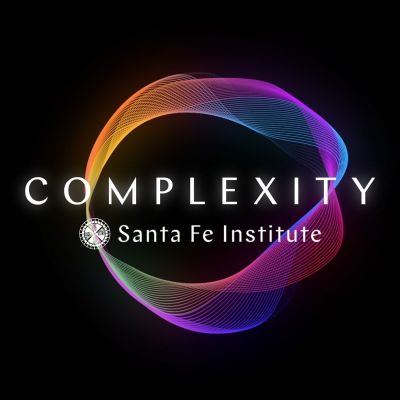Are there universal laws of life and can we find them? Is there a physics of society, of ecology, of evolution? Join us for six episodes of thought-provoking insights on the physics of life and its profound implications on our understanding of the universe. In this season of the Santa Fe Institute’s Complexity podcast’s relaunch, we talk to researchers who have been exploring these questions and more through the lens of complexity science. Subscribe now and be part of the exploration!
https://complexity.simplecast.com
episode 65: Deborah Gordon on Ant Colonies as Distributed Computers
The popular conception of ants is that “anatomy is destiny”: an ant’s body type determines its role in the colony, for once and ever. But this is not the case; rather than forming rigid castes, ants act like a distributed computer in which tasks are re-allocated as the situation changes. “Division of labor” implies a constant “assembly line” environment, not fluid adaptation to evolving conditions. But ants do not just “graduate” from one task to another as they age; they pivot to accept the work required by their colony in any given moment. In this “agile” and dynamic process, ants act more like verbs than nouns — light on specialization and identity, heavy on collaboration and responsiveness.
What can we learn from ants about the strategies for thriving in times of uncertainty and turbulence?What are the algorithms that ants use to navigate environmental change, and how might they inform the ways that we design technologies? How might they teach us to invest more wisely, to explore more thoughtfully?
Welcome to COMPLEXITY, the official podcast of the Santa Fe Institute. I’m your host, Michael Garfield, and every other week we’ll bring you with us for far-ranging conversations with our worldwide network of rigorous researchers developing new frameworks to explain the deepest mysteries of the universe.
In this episode we talk to SFI External Professor Deborah Gordon at Stanford University about the lessons we can learn from insect species whose individuals cannot be trained, but whose collective smarts have reshaped every continent. We muse on what the ants can teach us about a wide variety of real-world and philosophical concerns, including: how our institutions age, how to fight cancer, how to build a more resilient Internet, and why the notion of the “individual” is overdue for renovation…
If you value our research and communication efforts, please subscribe to Complexity Podcast wherever you prefer to listen, rate and review us at Apple Podcasts, and/or consider making a donation at santafe.edu/podcastgive. You can find numerous other ways to engage with us at santafe.edu/engage. Thank you for listening!
Join our Facebook discussion group to meet like minds and talk about each episode.
Podcast theme music by Mitch Mignano.
Follow us on social media:
Twitter • YouTube • Facebook • Instagram • LinkedIn
Key Links:
Deborah Gordon at Stanford
Deborah's TED Talk, "What Ants Can Teach Us About Brain Cancer and The Internet"
Deborah's Google Scholar Page
Deborah's book, Ants at Work: How an Insect Society is Organized
Further Exploration:
Complexity 10 with Melanie Moses (ants, scaling, and computation)
Complexity 29 with David Krakauer (catastrophe and investment strategy)
Complexity 56 with J. Doyne Farmer (market ecology)
Krakauer, et al., "The Information Theory of Individuality"
W. Brian Arthur, "Economics in Nouns & Verbs"
Michael Lachmann's research on Costly Signaling and Cancer
